˚✧₊⁎ my rgg side blog⁎⁺˳✧༚(they/them)tiktok: @uhoh.michioIn my amv era: #uh oh♪currently playing: IW ☆彡(*´꒳`*)
Don't wanna be here? Send us removal request.
Text

tanabata piece, they're my orihime and hikoboshi❤️😊
79 notes
·
View notes
Text
Is There Nuance to the Park-Majima Situation?
Don’t get me wrong, there’s a lot of great analysis to be done (and being done) on both Park and Majima. I absolutely get why Majima’s characterization in particular invites fans to analyze and reconcile the writing decisions that went into it. No one should have to shake their heads the whole time to show they don’t support Majima’s actions, either. I was a diehard Majima fan not long ago and I’m a fan of characters who’ve done worse now. Trust me, I understand, and all I’m asking for is the same understanding in return.
With all that said, I still believe the nuance Yokoyama depicted their relationship with originally is contrived and falls apart if you believe in reproductive rights, and that some arguments that aim to introduce more nuance are either rhetorically flawed or based in misconceptions.
Let’s at least start off on the same page here: Yakuza 5’s critical error in portraying Park and Majima’s relationship was bothsidesing what led to their divorce. Park is punished on every level for her choice to have an abortion. She loses her dream, her marriage, and even her ability to have children altogether. She reflects upon it with regret as a youthful mistake, a “sacrifice.” She valued her dream over a clump of tissue—their “unborn child” as many would see it—and paid the price as though it were equivalent exchange. She can never be happy as a consequence of her choice. It’s not unlike how the series approaches portraying the yakuza, who make far more damaging choices.
Park did absolutely nothing to warrant that. She had no responsibility to tell Majima (in advance or at all) and no responsibility to carry the pregnancy to term. He had no right to hit her even if it was “the only time” and no right to expect her to perform reproductive labor at the expense of her career. If he valued her career to begin with, he shouldn’t have pursued the marriage at all. I imagine he would agree at least with that much. I would hope we can all agree.
For all that I expect we do agree, though, and for all that I truly do believe these discussions are carried out in good faith and with due consideration, there are points where the rhetoric overlaps with the rhetoric of Yakuza 5’s bothsidesing. That's because a number of arguments ultimately boil down to introducing culpability on Park’s part and introducing mitigating circumstances on Majima’s. But Majima (and in turn Yokoyama’s) position that Majima is owed reproductive labor, owed advance notice, owed any kind of notice in any way is just not one that merits serious deliberation.
One common argument is that, statistically, what happened is “to be expected.” I don’t mean from them as characters—I’ll leave character analysis to the pros—but in general. Anyone would have been upset at what Park did, any marriage would have crumbled, and so on. I don’t want to call it an appeal to normalcy since it’s not always used to justify Majima’s actions, but in my opinion, it exaggerates the prevalence of certain aspects of their relationship and of Majima’s actions, and so makes them out to be more accepted at the time than they necessarily were.
Let’s consider the statistics in Japan. Where possible, I’ve consulted sources that specifically cover the same year or at least decade. I’m short on time writing this, so by all means do your own research.
An age difference greater than seven years in marriages is uncommon, but accepted, though it should be noted Park got married quite early and Majima got married at the average age. Domestic violence is not uncommon, especially for women coming from troubled backgrounds. Japan was one of the first countries to legalize abortion and has some of the lowest rates of teen pregnancy in the world, as well as low rates of abortion. Among women who get abortions, women Park’s age are about as likely to get them as women in their forties, both being the least likely groups overall.
What I believe to be the most important consideration, though, is that it is illegal in Japan for a married woman to get an abortion without spousal consent. It’s not important because it applies to Park—she’s concealing her marriage, she can get around that requirement. It’s important because of the societal attitudes it reflects.
Even now, to avoid litigation, to uphold their interpretation of the law, and to “preserve the rights of men,” many doctors seek consent even from unmarried partners, which is not a legal requirement. This law is considered one of the biggest obstacles to abortion access for women in Japan, and many doctors, though not the majority, agree it should be upheld.
That's despite a very low rate of actual disputes with doctors arising (just 6.3%), and despite a low rate of husbands outright denying an abortion (11.3%). Although this is recent research, it is consistent with research published in the USA in 1999 and 2025 suggesting equally low rates of partner dissatisfaction with abortions.
Some aspects of Park and Majima's relationship were “normal,” but others weren’t. It’s not “normal” in a partnership that was otherwise supportive and wasn’t otherwise abusive for Majima to even be dissatisfied with Park’s abortion, let alone to have such an extreme reaction as hitting her and divorcing her over it. I can believe Majima would do it, but it's not something just anyone (everyone) would do.
To briefly touch on another common argument or theory in the same vein of introducing mitigating circumstances for Majima, suggesting he may have married her only or primarily to support her career or otherwise for pragmatic reasons: if that were the case, he should have been in support of it or at least not seen it as his business. For him to have such an emotional outburst is, to me, not consistent with a pragmatic outlook. It suggests things either did not start that way or did not end that way.
Similarly, for Yokoyama to spend so much time establishing mitigating circumstances for Majima’s reaction, for him to establish Park as culpable and narratively punish her to the degree he does, serves to do nothing rhetorically but establish a gray area for the sake of establishing a gray area and keep Majima from fully crossing the “moral event horizon.” As a narrative device, it's no different from Saejima’s “Temptation” cutscene (yes, that’s what it’s called) in Yakuza 4 and the reasoning Kiryu goes on to offer for it.
It is rooted in nothing but Yokoyama's own values—around “preserving the rights of men” and women having abortions for “selfish” reasons—and what Yokoyama considers worth "preaching" (his term) about. Even in Yakuza: Like a Dragon, which features a far more nuanced and compassionate take on abortion from Yokoyama than Yakuza 5, no abortion actually took place and the one that would have would’ve been economically unviable, another requirement for a legal abortion.
So while we’re talking about nuance, I hope there’s still room to say not everything benefits from nuance and not every devil needs an advocate—or, at least, to say we should avoid making the same mistakes Yokoyama did.
47 notes
·
View notes
Text
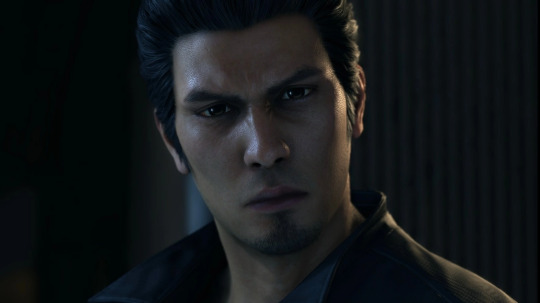
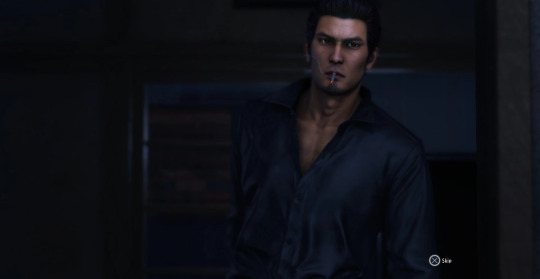
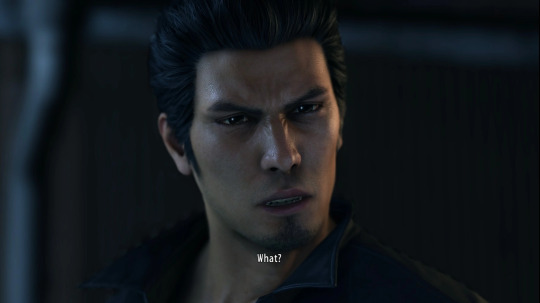
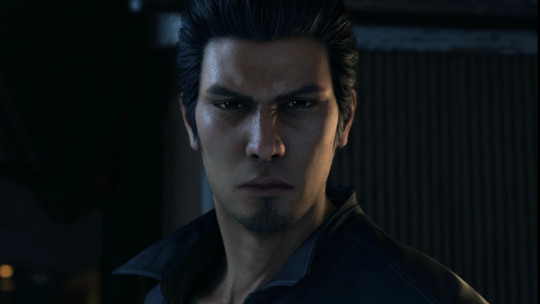
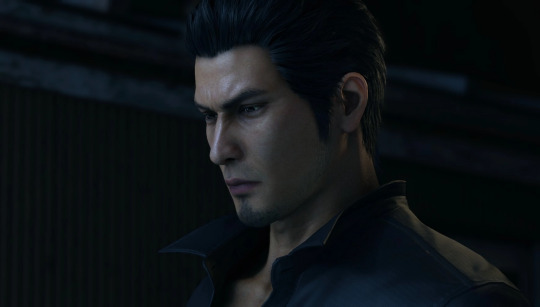
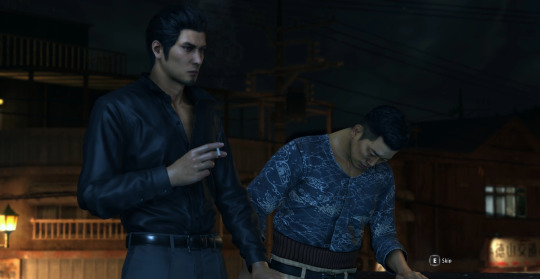
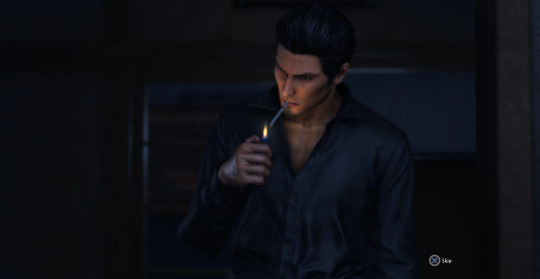
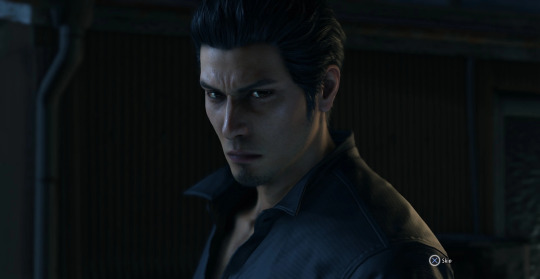
Time to head out to Onomichi.
15 notes
·
View notes
Text

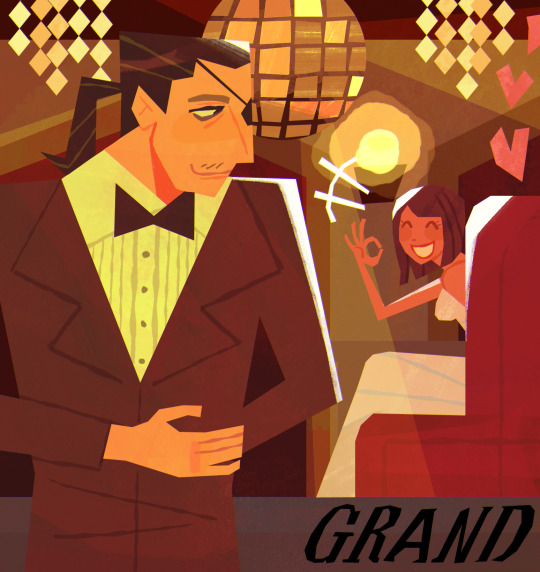
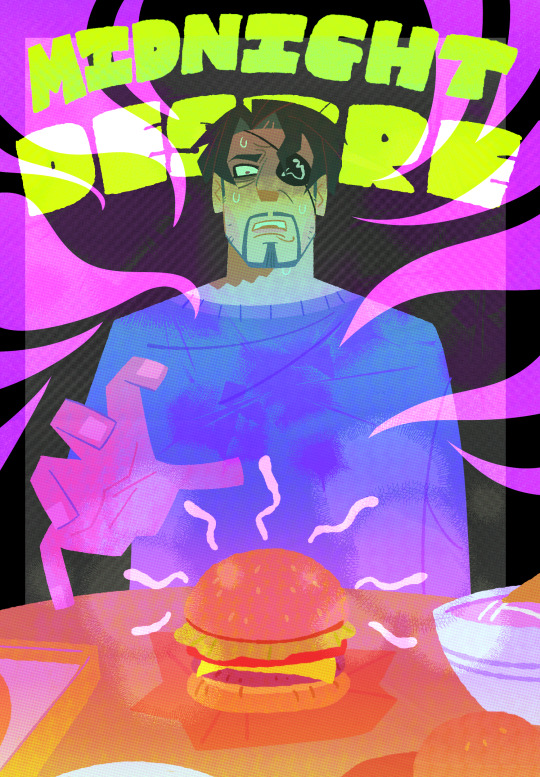
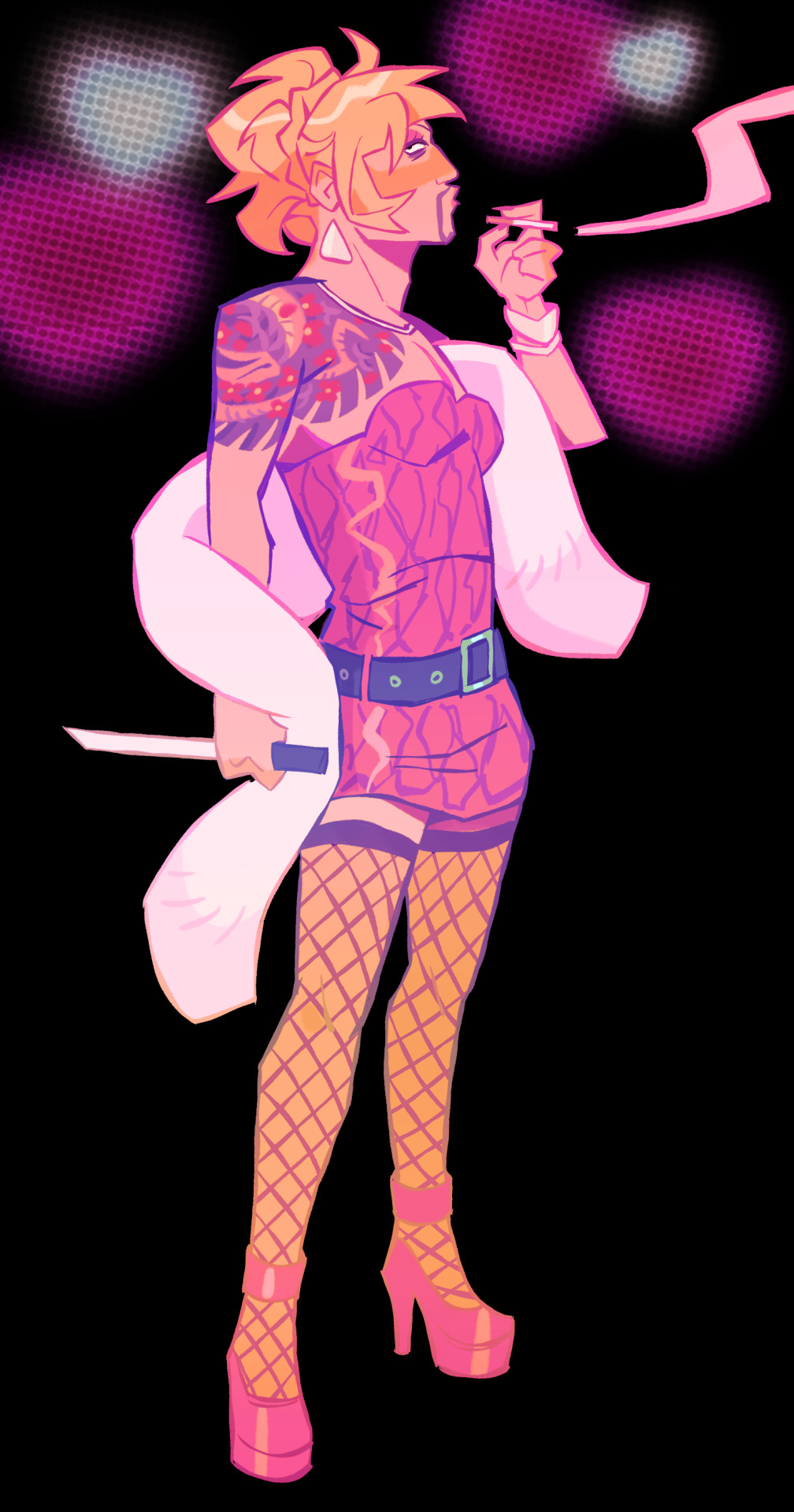
back on tumblr HELLO!!!!!! i'll be posting my old art slowly and hope my acc won't be hacked AGAIN
992 notes
·
View notes
Text
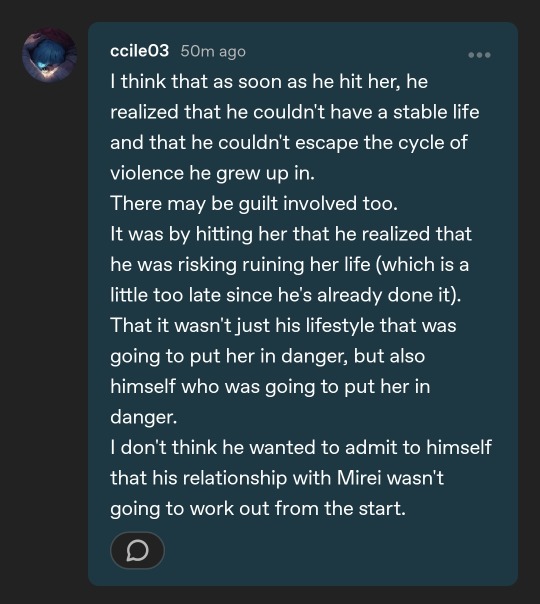
okay so, i'm going to address this here because i want more people to see it and weigh in, since it's something i'm not sure about and i want opinions.
i talked about this a little bit in the tags of another post, but i will elaborate on it here. it was also my interpretation for the longest time (and i still think it might have played a part in the whole thing) that he massively regretted hitting her and felt like a piece of shit for it, and that's the main reason he divorced her. realizing he couldn't protect her from himself much less anyone else, seeing no hope of being part of a happy traditional family for himself, and for mirei *with* himself.
i do think that still holds up as a reading. however. recently ive been considering whether or not he actually even regrets it or disagrees with it, like, ideologically. we all know majima has a huge soft spot for women (and children) and that he's very protective of them. that being said, the following things have happened in rgg:
-kiryu slapped haruka
-date slapped his daughter
i dont remember if they expressed remorse about it afterwards. but the fact is that "slaps" are considered by these characters to be.... acceptable? somehow? even a character like kiryu, *the protagonist*, sees it fit to slap a child. it's sort of done as a "get it together" thing, in their minds. (NOT saying this is okay.)
with majima's... entire worldview, i don't think its unlikely at all that he would consider a pregnancy a miracle and consider it a life, and, terminating it akin to murder. yes. i am saying majima might be pro-life. (see the point about his soft spot for children.) in addition, i think with his issues about agency, he might've felt truly betrayed by mirei. with a combination of these two factors, and how rgg treats slaps (and assuming that it WAS a slap), i can see majima doing it completely self-righteously and without remorse. i also don't know if he even has the emotional tools to think about things in terms of "escaping cycles". i genuinely dont. at least not at that point in his life.
i think it's still possible that the points you made played into it regardless, but i can't really explain why he *did* hit her in the first place without these considerations. and majima isn't wishy washy, he stands behind his decisions. obviously he wasn't like "fuck this girl" because he definitely still cares about her, but i don't think he would just consider what he did a mere lapse in judgment either. maybe he'd be like "yeah, i probably shouldn't have done that in retrospect", but in the moment and leading up to the divorce, i can see him not being bothered by the fact that he *hit his wife*. i do think he might genuinely be that far gone.
there's also the point of mirei being sort of a cautionary tale against getting an abortion -- she lost the ability to bear children because of it and it (and the events surrounding it) basically ruined her life. the way she talks about it, she seems somewhat regretful. compare this to a character like haruka who did get pregnant and keep the baby, and how that's portrayed in the series. my point being -- if the writers sympathize with majima in this because they condemn abortion, it is more understandable that they would choose to write majima this way
either way i totally agree he didn't want to admit to himself that this relationship was never going to work out. these are just some thoughts that have been floating around in my head
#cw for the tags: sleep deprived thoughts#yeah rgg has a lot of women slapping#1. date san punishing his daughter#which to me felt juvenile— like shes a teen and had outgrown that punishment what business do you-an absent dad- have to act like a dad now?#2. kiryu slapping haruka#i rewatched this recently and he apologizes immediately- i still think it was an ‘in the heat’ moment- his emotions got the best of him#3. kawara slapping kaoru’s mom when trying to throw herself with baby ryuji out the building#this one felt like a ‘snap out of it! get ur shit together!’ kind of moment#not trying to justify or condone this kind of violence— just bc someone has a reason behind violence doesnt suddenly make it right#idk i keep thinking about majima and mirei in relation with someya and kiyomi in terms of violence#when first playing through y5 i kinda thought maybe it was more like a kawara slap moment? but after finishing y5 and playing through y6#it feels like the writing handled it closer to how dv was depicted in y6#this is just based on my personal view of the cinematics and way the story handled it— so essentially the vibes#someya to me is such an interesting antagonist bc compared to past antagonists hes not as insane/phys strong/infl. powerful as other antags#but hes such a strong antagonist to kiryus viewpoint of family and the theme of the story#the addition with mirei and haruka is interesting bc i kinda noticed that too- like how haruka went in a different direction than mirei#unfortunately even if haruka followed mireis footsteps or went in the other direction— kiryu still has to leave her life :(#i kept wondering what haruka meant in y6 when she said ‘i want to be closer to uncle kaz’ when she left morning glory#i think she was just trying to take responsibility the way he does— by leaving#so ig its similar in the beginning of y5- she is following an adults footsteps but then at the end of the game has a different outcome#idk if any of that makes sense#this is all just half baked thoughts sjidjejeidijd#i still greatly need sleep oh dear lord#also yeah majima would probably be a pro lifer#mirei#haruka#txt#thoughts
37 notes
·
View notes
Text
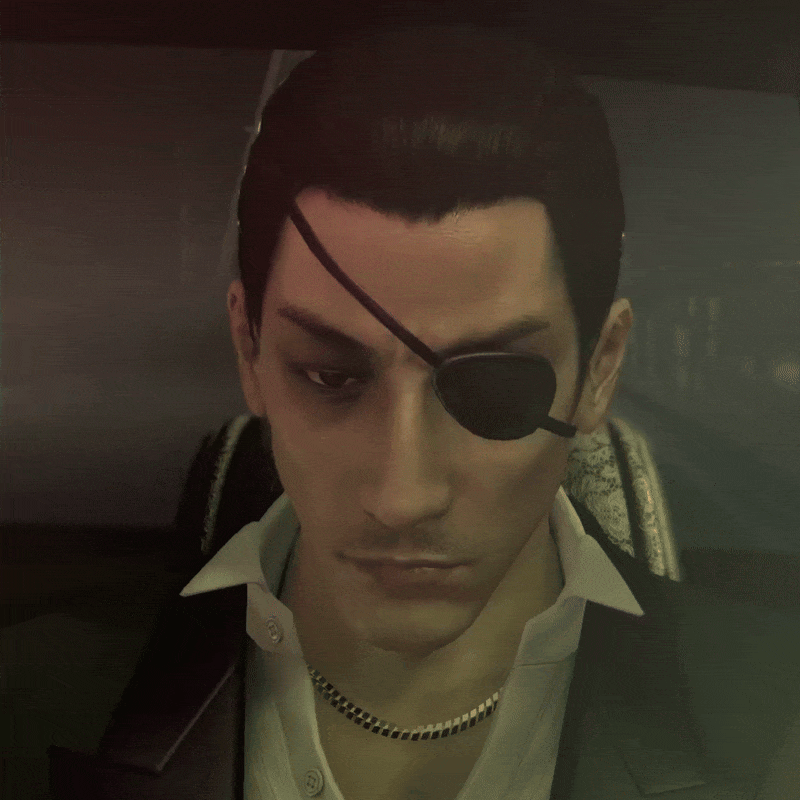
Yakuza 0 - Den of Desires You see a lot of people send their dog out to walk itself? Fuck no, right? If you leave Sotenbori, it’s with me holding the leash. Understand?
#:’) this scene when he finally leaves sotenbori for the first time in like what 2+ years?#and then it cuts to sagawa being like :} :| :/ :(#majima#y0
24 notes
·
View notes
Text

[ID in alt]
in the West Park oil drum
35 notes
·
View notes
Text

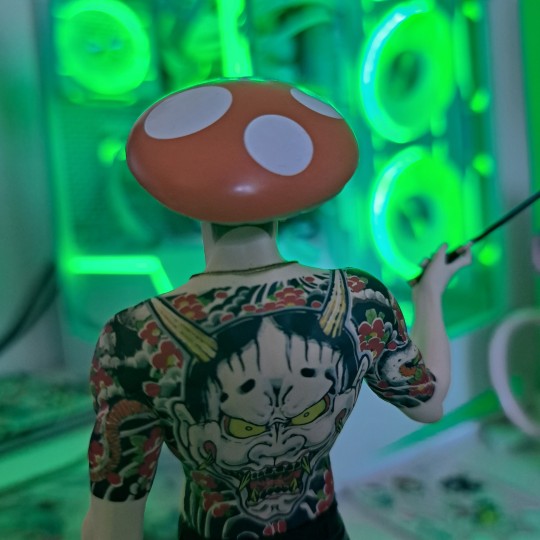
sylvanian families mushroom hat fits perfectly on him
68 notes
·
View notes
Text
alternatively: me when i am not romantically or sexually interested in women but i marry one anyway like many many have done before me because it's what you're supposed to do. but i marry the one girl that is uniquely unable to be a wife due to her career and the fact that that's what drove me to marry her because i dont want to be married or have a wife is completely lost on me and im shocked and appalled when i realize our marriage is going to be a problem for her. so we have to get divorced. for her sake. and not because i never wanted it anyway
#dog… when i first started reading this i thought it was a personal post for some reason…#and i was like ohyeah so true#thats what i get for only being able to sleep for 4 hrs a night for a whole month#god i need sleep#i must embark on a scavenger hunt for the prev post#mirei#majima
24 notes
·
View notes
Text
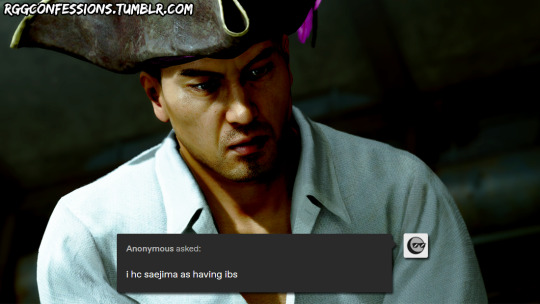
Anonymous: "i hc saejima as having ibs"
16 notes
·
View notes
Text

By request, some very rough thoughts that I'm currently putting towards a Mirei character study (yep, this isn't that - this is more Majima considerations) A forewarning - it's headcanon heavy...
We good? It's nearly 2,000 words long, I hope you've got a hot drink and a pen to take notes, there'll be a quiz at the end

The bump I’m coming up against is that the characters’ entire relationship exists in the space of a few lines of dialogue, 15-20 years after the fact. Everything else, we have to infer from Mirei’s characterisation, and Majima’s characterisation before and after 1991. I wrote about some my thoughts on the latter earlier this week (I'll link all referred posts at the end) Majima is a man of principle and at the point he marries Mirei, his principles are already about 50,000 leagues under the sea. We know how their relationship turned out, and we know that in 1995, he’s neither the person we saw in 0, nor is he the character that exists beyond the death of Shimano. In reality, that’s a matter of evolving character development (and the timeline mess of prequels and remakes).
But we don’t truck with that here. Inferring genuine character development out of practical, extra-textual matters is the spice of life and Majima has that in spades (and I would argue that with 0 in development, the past events relayed in 5 were something of a creator’s gambit to say that Majima wasn’t in a Good Place the first time we met him) The combined events of the late 80s, plus sacrificing his own ideals to play lapdog and enforcer for Shimano, and the tragedy of their divorce leads to an apathetic man who tells Kiryu that thinking there’s a point to anything will break him.
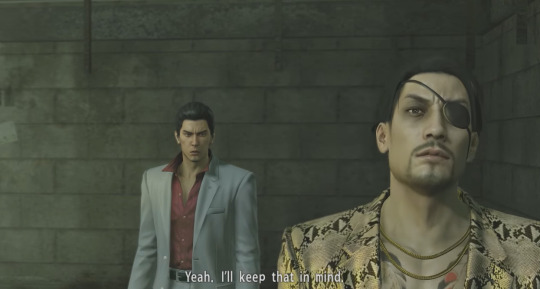
No ideals … yet. Just vibes. Ten years later, Kiryu gets out of prison and the iceberg melts.
But that’s in the future. It’s 1991ish, and Majima is a 27 years oldish clan captain moving up the ranks of the Tojo, already infamous and on his way to legendary status. Mirei is an 18-year-old budding idol from a less-than-ideal background of her own. Let’s assume that it’s a whirlwind romance (I’ve written more on my feelings on the power dynamic and the age gap earlier this week, and I encourage you to read the responses for a far more nuanced consideration of that – but I’m not going to into it here).
What I’d been struggling with is who she is, and what he sees in her.
Mirei comes from an unstable background, with financial uncertainty. Although he’s stated at one point or another that he’s terrible with money (and just generally not motivated by it), Majima has that. And if he doesn’t have it, he’ll get it. Just go out and put the work in if he feels like it that day. Shits and giggles. He has power, and that begets security. With no foundations and plugging away at a fractious career (at best) amid economic collapse, she can do a lot worse. She’s probably been to plenty of meetings and auditions where men twice Majima’s age call her a pretty little thing (Katsuya himself says that that’s all that matters for an idol) and offer her a step up the ladder. Real creeps, and worse.
However she meets Majima, then, he checks several boxes. Money, security, connections. It’s likely that he didn’t value her for her outward appearance or as a trophy, because that’s not his way. He values people who are honest with themselves and stick to their principles, even if that can’t be him. He also values honesty in general, which obviously becomes a problem. He is a young man, old enough to have at least some of his practical shit together, much younger than the execs at knocking at the door. He’s attractive! And. For an idol who isn’t allowed to have any kind of romantic relationship? He’s also pure danger.
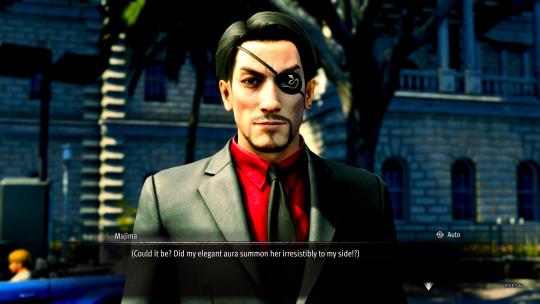
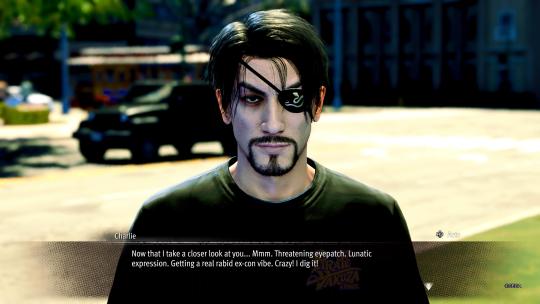
Financial security, power, and an element of risk all point to the other thing that Majima values above all else: freedom.
OKAY.
Plenty to work with for why Mirei hops on the Majima train, and if we’re assuming a whirlwind relationship… well, very likely not enough time to realise that the charisma and excitement hides a broken man that she can’t be expected to fix, not until it’s too late.
What does Majima see in this girl, then?
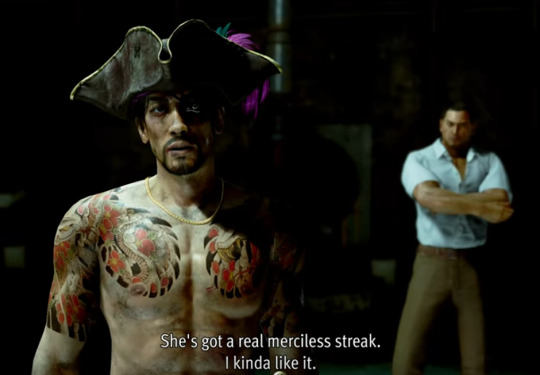
@majimaisms suggested that he might have seen the same potential for ruthlessness in Mirei that Makoto bore towards the end, and that’s definitely a possibility but when I really think about the character, I think that’d be on a surface level thing. He says the above about Naomi (and similar vibes between Okita and Otose <3). I think Majima, as a character, operates on too deep and unconscious level for that to be his driving interest in a woman. Respect, definitely, much like with Sagawa’s tenacity and Shimano’s steamroller way of going about things. Deep, romantic attraction? That’s not what swung it with Makoto. So, whilst I was cooking alive in my unairconditioned, windowless office yesterday, this is where I started really going into fanon territory. Here be sharks. Apologies in advance, I'm going to invoke Freud (I hate doing that).
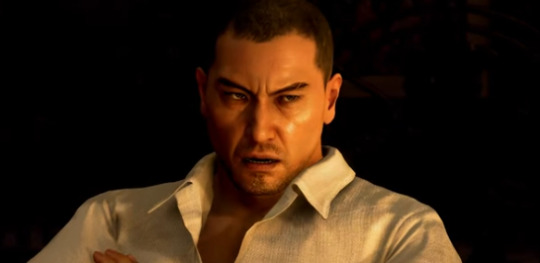
Majima is a man doomed to repeatedly finding attraction (of all kinds) in other people via some character that can be perceived as he himself having. This isn’t necessarily a conscious thing. But for a man who exhibits… not self-hatred (yet) (outside of the Saejima thing) (bear with me on this) but self-apathy at the very least… this makes for shaky foundations for a relationship.
With Kiryu, he shares a complete inability for preservation on his own terms. His initial common ground with Makoto is, at best, blinding and imprisonment. At best.
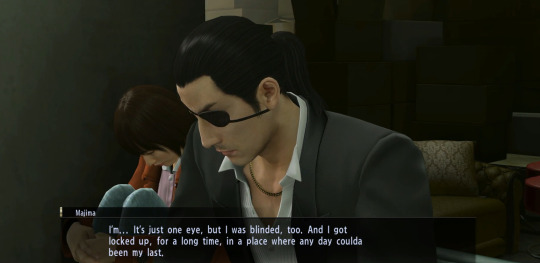
But he continues to zero in on whichever perceived characteristic unites them and then sets about trying to protect them from it, whether they him to or not, and doesn’t spot the pattern.
‘Makoto/Kiryu/etc. If you keep going down that path, this is the end result. I will fix it, thereby fixing you. Thereby fixing me.”
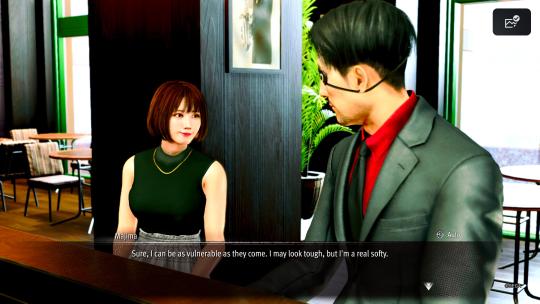
He might see ruthlessness in Mirei, he probably does. It’s definitely a characteristic they share (side note: I have no doubt that the breakdown in her relationship and the collapse of her career led to her cynicism in 5. But she’d already been dealt a tough hand and I’m loath to fall back entirely on the trope of ‘woman has sex with man and is magically changed uwu’).
Like with Naomi then, he’ll have seen this tenacity in her and almost certainly been drawn to it in the first instance. But it’s not the cause for a deeper attraction because their ruthlessness does not come from a similar place. She is ruthless for self-preservation. He is ruthless to be pragmatic. Maybe that makes her a puzzle to solve, like with Kiryu later on.
So, what else do they share, and I mean really share?
Maybe he’s just got some serious déjà vu for a rootless 18 year old joining a highly structured, life changing organisation with heightened power/control dynamics, a need to repress desires and intentions, and malevolent intentions around every corner. ‘Shit, somebody putting themselves in THAT situation would definitely need protecting, right? I can fix that. I will fix that, that is something to be fixed.’ Ough. Agh. Ooh, that’s… that’s starting to sound familiar, right?
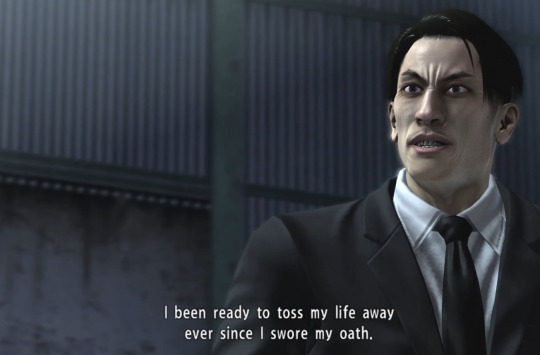
Mirei also differs from Makoto (please see my upcoming essay on their dichotomy in the fanbase dropping in hardback for Christmas). Whereas Makoto is motivated by a need to find stability in family (whether that be her brother, her found family, or through a happy marriage she never thought she’d have), Mirei sees this the family aspect of a byproduct of stability. To quote Saejima… Mirei needs to know how far she can climb in the ranks. How successful she can be. What she can achieve through her own determination.

Congratulations Majima, you married a simulacrum of the brother you betrayed, hope that works out for you and resolves some of the issues you have, and you find peace and penance through that.
That’s right, I’m going there. I’m not normally one for Freud’s psychoanalysis but if it walks like a duck and it quacks like a duck.
Majima is falling for people who represent the things he finds most contentious within himself. Makoto shares his painful backstory. Kiryu shares his morally grey death drive. Mirei represents his greatest failing. His biggest mistake, and his driving force for 25 years. His regret at not being able to be there for Saejima is what keeps him alive in a torture basement, it’s what allows him to lick Sagawa’s boots and soldier on in Sotenbori, and it traps him in the Tojo until he’s too foundational to ever truly leave. It’s his life’s mission and his death drive; peace will only be found in death at Saejima’s hands. This, by the way, is already baked into the character by the time 5 drops the additional lore. The whole time he’s married to Mirei, he’s waiting for the boot kicking down the door to fix everything. Until then? He can’t go back in time and stop himself or Saejima signing up with the clan as teenagers, he can’t undo that. But he can stop history repeating itself. Can’t he?
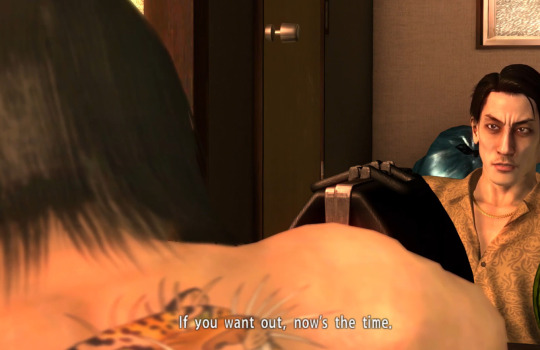
And when he is finally dead at Saejima’s hands, maybe he can finally allow himself to meet Mirei again on equal ground and ask for her forgiveness, too.
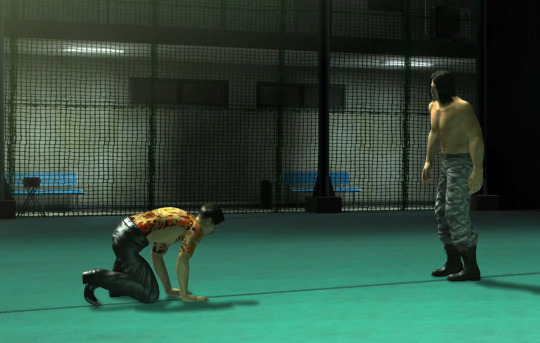

(per RGGO, translation at this link, screenshot via majimaisms)
Like with Makoto, he protects Mirei in the end by walking away. He finally realises that he can’t fix his problems through them, he can’t fix the issues of his own that he perceives in them. But he can remove the original flaw from the equation, even if they suffer for decades with the questions that they have unanswered.
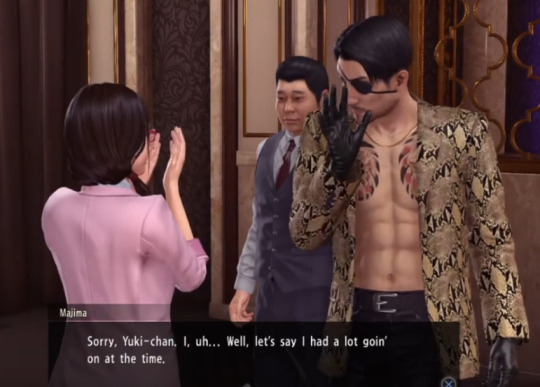
Pathological. Anyway.
Pirate Yakuza in Hawaii, by the way, offers closure on this (and Majima’s arc in general, really). His finds a new kind of connection in Noah, of being depended on and trusted by a child. For the first time, and doinked in the head by a ship hull, his connection still represents a primal concern/fear of his, but it's a pure one:
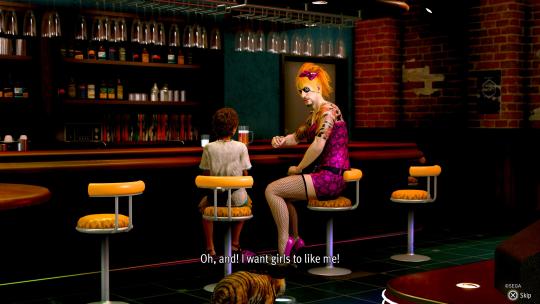
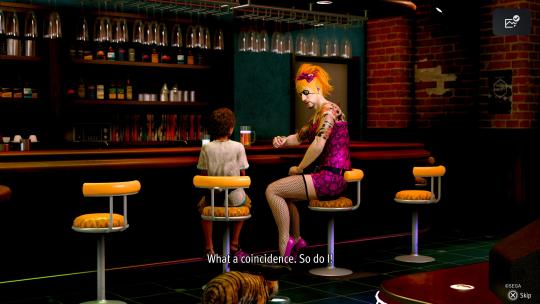
No, not that. They each dream of their freedom. There is already a fantastic comparison post of Majima and Mirei’s angle on dreams/freedom so I don’t have much to add to that. Mirei foists her dreams and ambitions on Haruka, trying to live them through her before realising her mistake and coming to see the girl as a surrogate daughter. Majima is probably doing the same through Noah, except Noah has asked him to. For the first time in this whole sorry saga, somebody has explicitly said: ‘help me resolve this shared problem’. He does, and through doing so, he is able to gain closure. I posted about that earlier today, too. He fixes things for Noah. He fixes things for himself. He doesn’t need to walk away at the end (the classic Kiryu soft-shoe shuffle into the sunset).
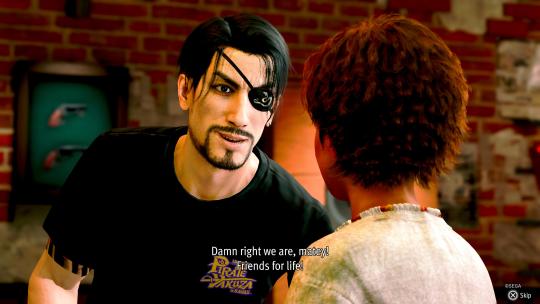
This doesn’t ultimately answer the question for me of who Mirei is as an 18 year old but there’s a lot to extrapolate (and lots of things I haven’t even touched, like, gender, and power dynamics and Haruka and onwards forever). If you made it this far, then god I want to know your thoughts and thank you for reading <3
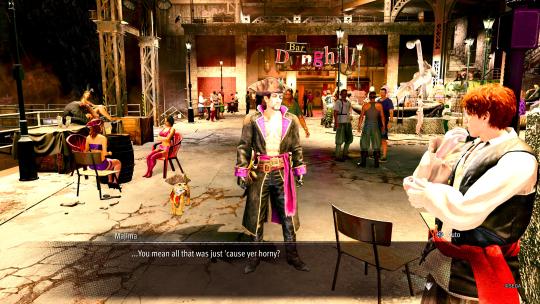
For ref (cite your sources kids):
Majima and Shimano - text post + reblogs
Majima and Noah - photo post
Park and Makoto - text post + reblogs
and
Majima and Park - photo post
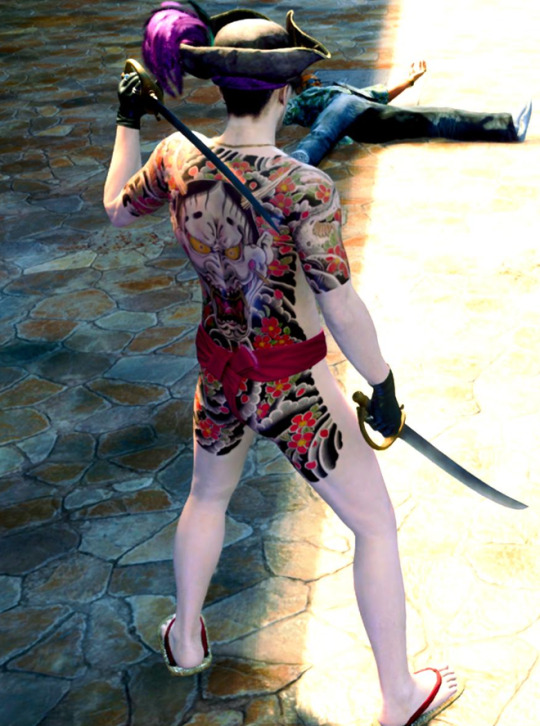
ass
#ok i finally got around to reading all of this#this was good food and im a lil too depressed and sleepy rn to add anything mildly intelligent#so im just nodding#such a majority of the fandom just dismisses mirei as a callous awful woman and leaves it at that#and the other half just sees makoto as a replacement for mirei— when its like no… they are different characters… do you hate women?#im so glad post was written with all the additions everyone added#this was a very good read and fun + easy to digest prose all around#mirei#majima#txt
75 notes
·
View notes
Text


goromi and hannya man
2K notes
·
View notes
Text



18 notes
·
View notes
Text


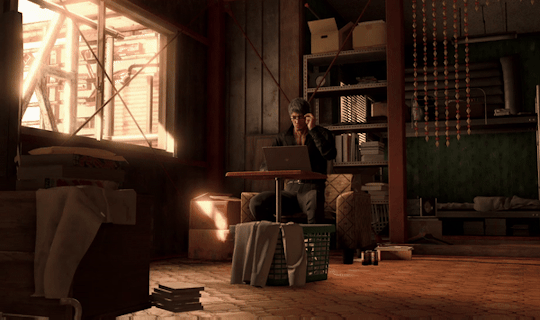
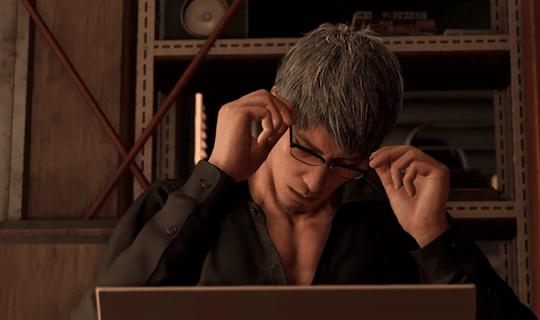
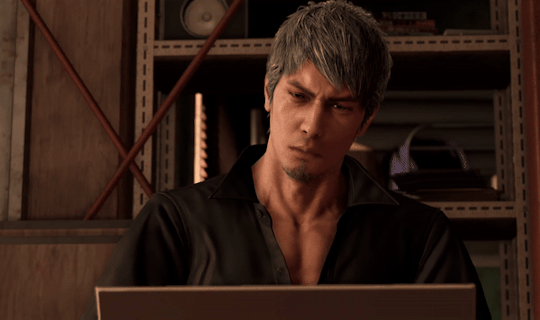
Kiryu + glasses + laptop
396 notes
·
View notes

